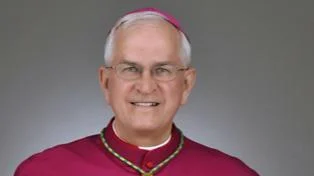
Reverend Joseph E. Kurtz, D.D. Bishop | Archdiocese of Louisville
After a recent visit to Ukraine, Archbishop William E. Lori of Baltimore urged U.S. Catholics to carefully evaluate the current situation in the region and avoid getting caught up in extreme political rhetoric. Speaking with Catholic News Service on October 25, Archbishop Lori emphasized the importance of being cautious about exaggerated statements from all sides.
Discussing the United States' role in supporting Ukraine, Archbishop Lori stated, "we want to assist the Ukrainian people," but cautioned against isolationism and contributing to conflict escalation. He referred to historical lessons from 1939 onwards as reasons for this balanced approach.
A significant development was reported by a White House spokesperson on October 23, noting that around 3,000 North Korean troops had arrived in Russia for military training. The impact of their involvement in Russia's war on Ukraine is still uncertain.
Archbishop Lori acknowledged the complexity of resolving the ongoing conflict: "I don’t think we realize either how difficult it would be to achieve some kind of a way out of his struggle." He highlighted that practical solutions are challenging despite various proposals being made.
With an impending U.S. presidential election, Archbishop Lori advised Catholic voters to seek informed commentary over partisan views and reflect on candidates' positions through prayerful consideration. As vice president of the U.S. bishops’ conference, he reiterated that abortion remains a top priority due to its fundamental nature concerning human life rights.
While emphasizing abortion's significance because of "the utter innocence" and vulnerability involved, he clarified that other issues should also factor into voting decisions: “That’s why we would speak of it as preeminent. It does not mean, however, that there are not other things that have to be woven into the calculus of voting.”
Archbishop Lori concluded by urging Catholic voters to engage with faithful citizenship documents thoughtfully and demand clear policy stances from political candidates: "We should be demanding that our candidates tell us what they actually think...that we do not do this is to our detriment."


 Alerts Sign-up
Alerts Sign-up